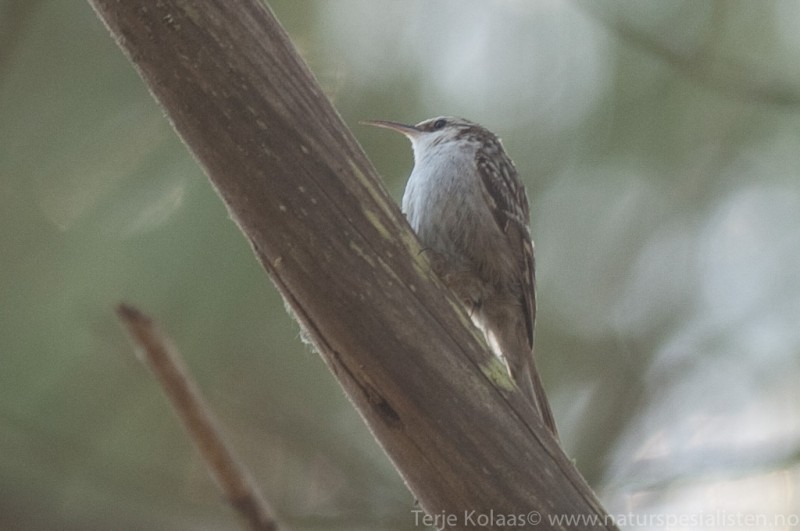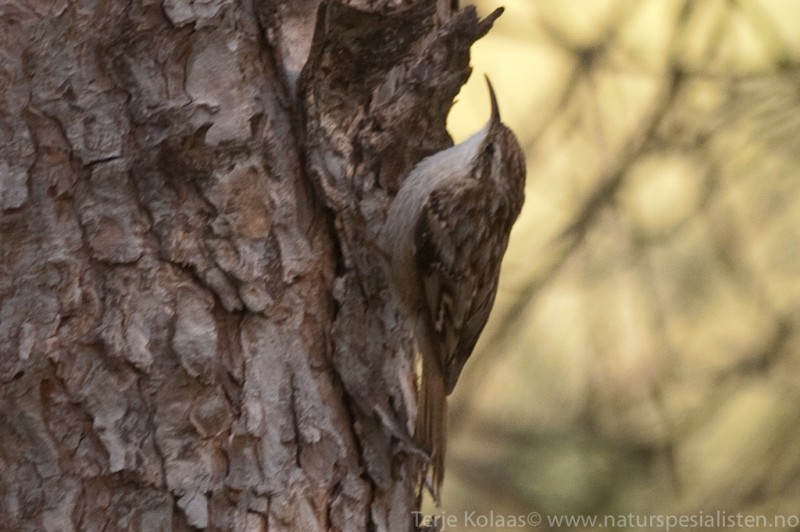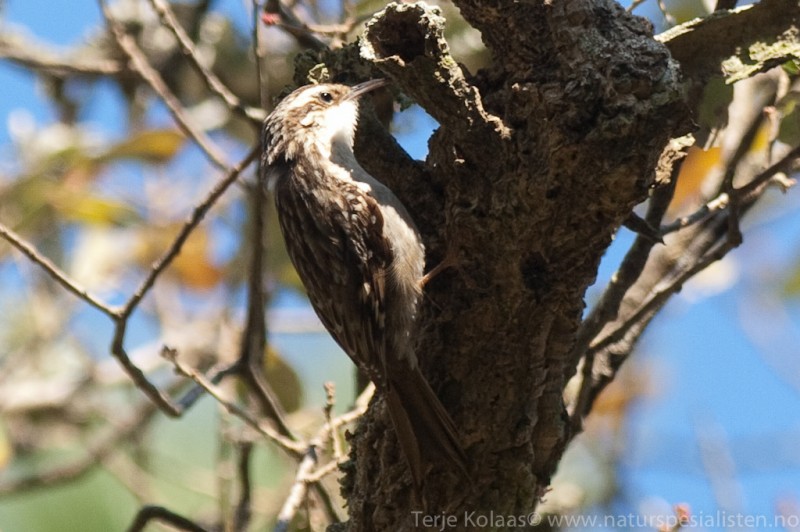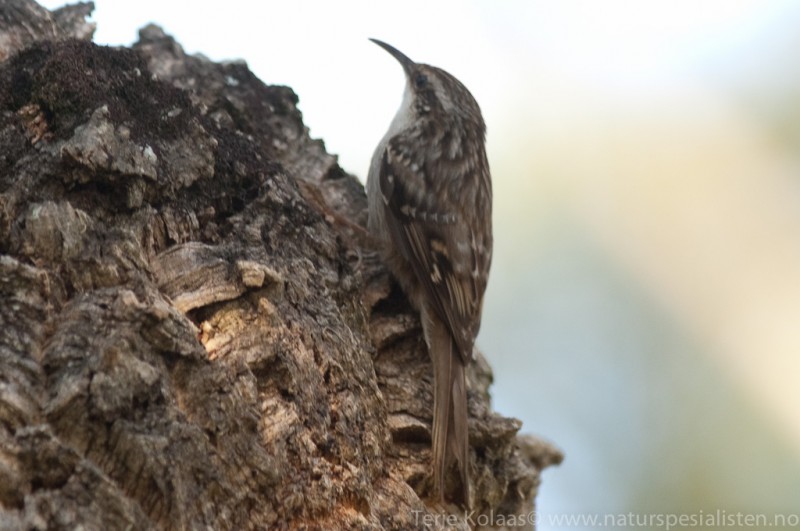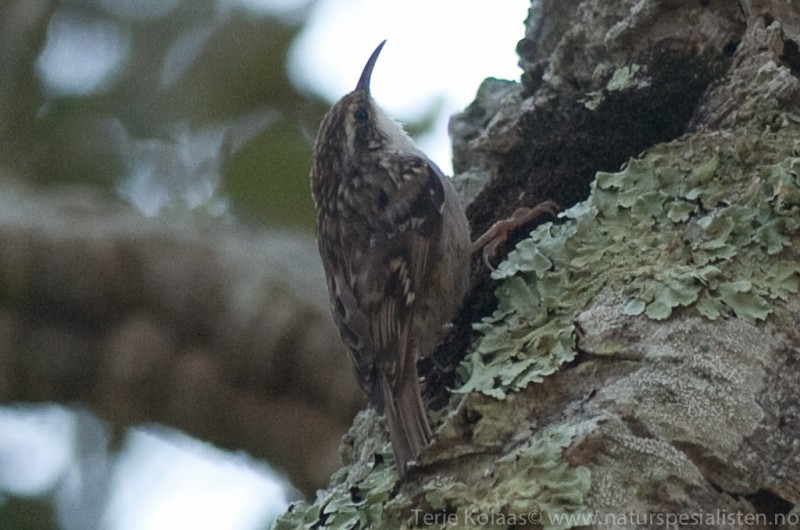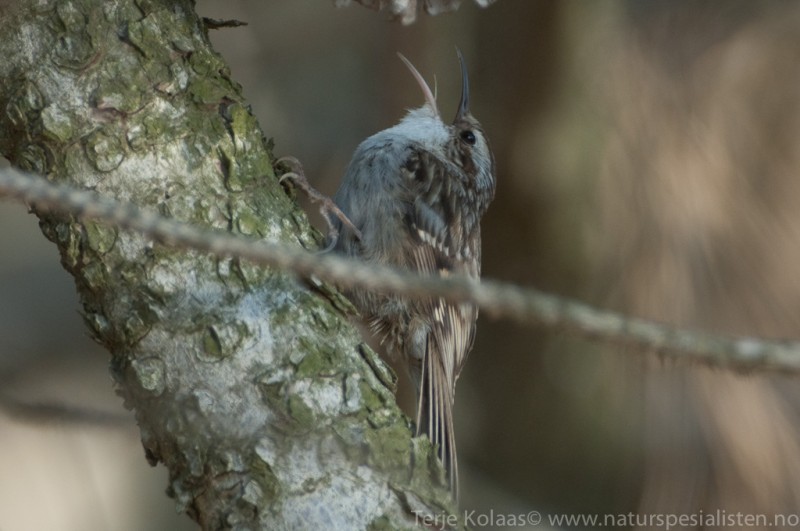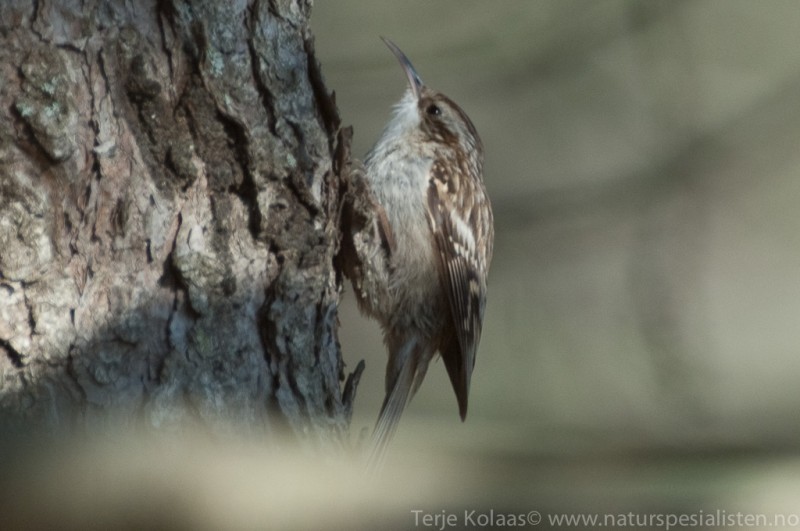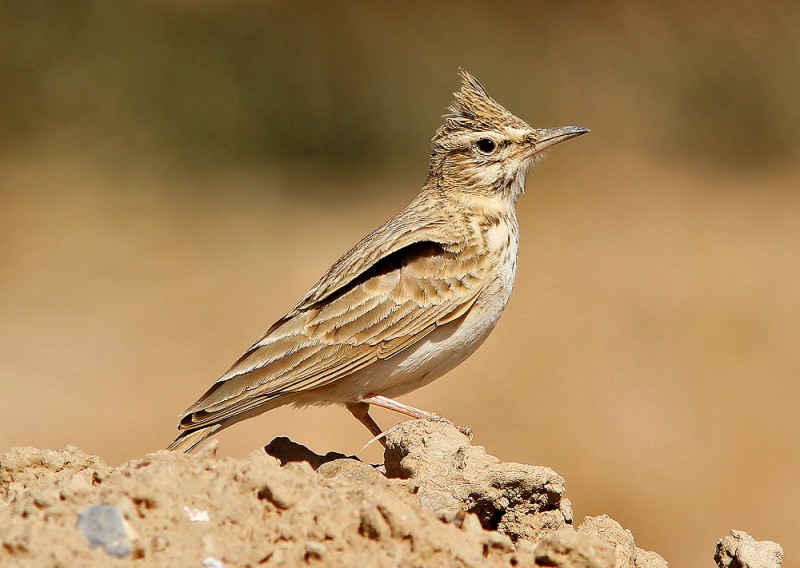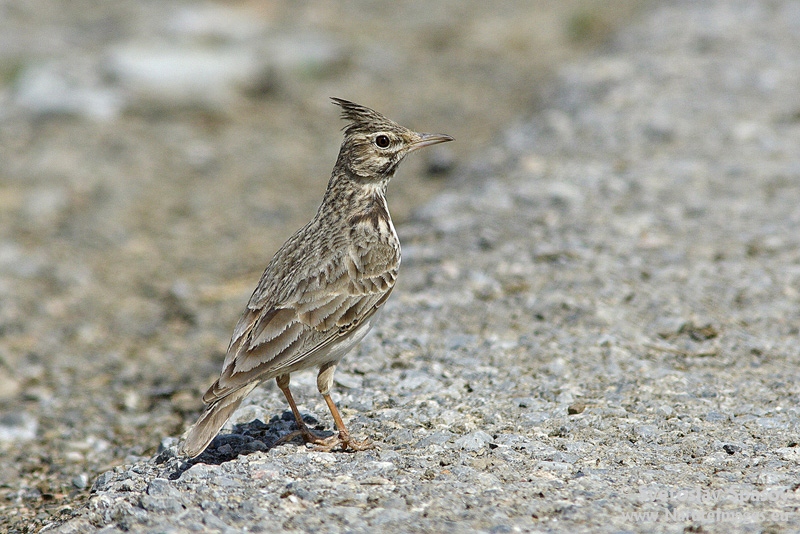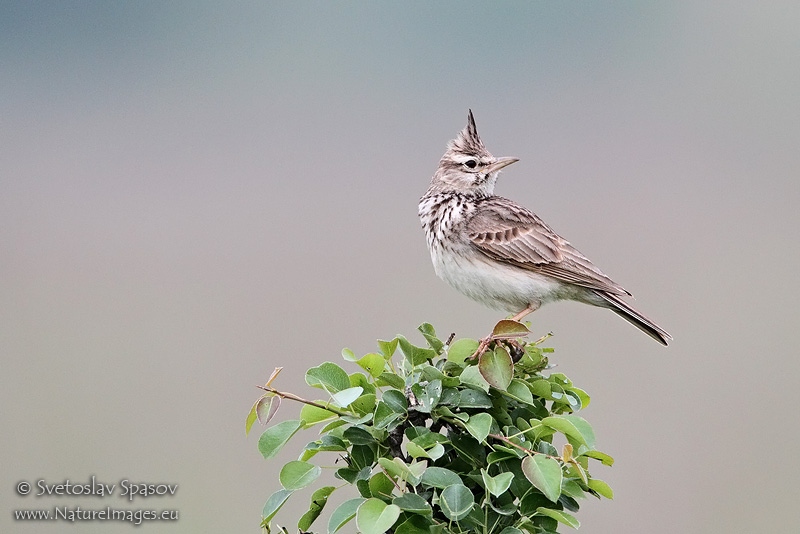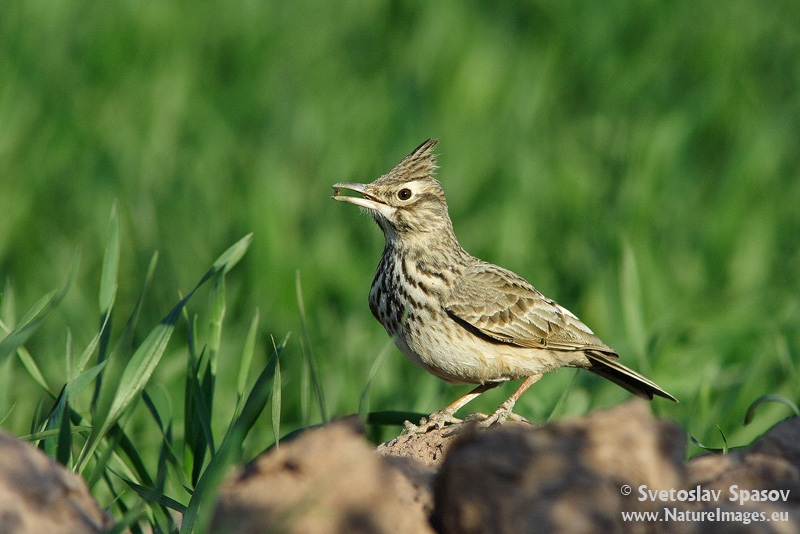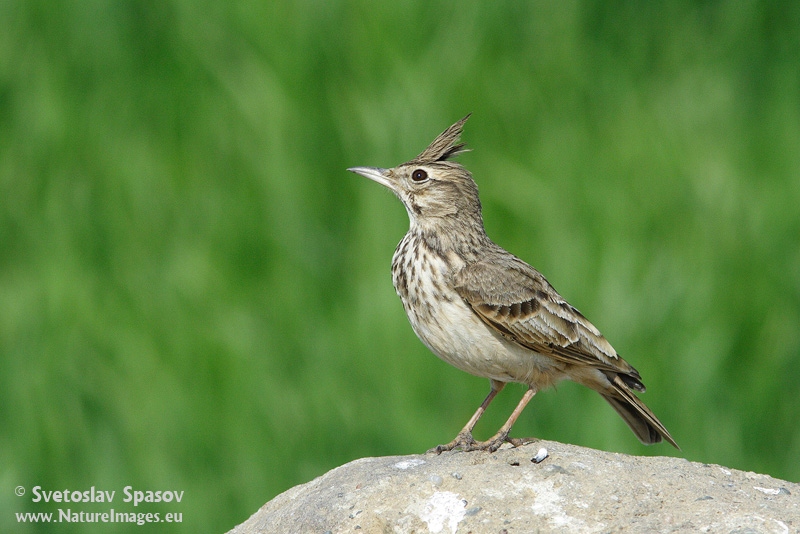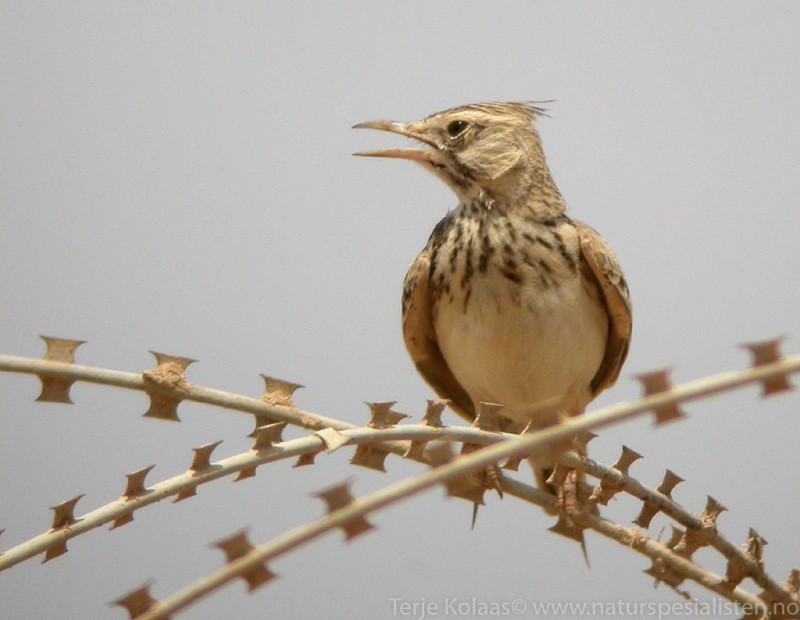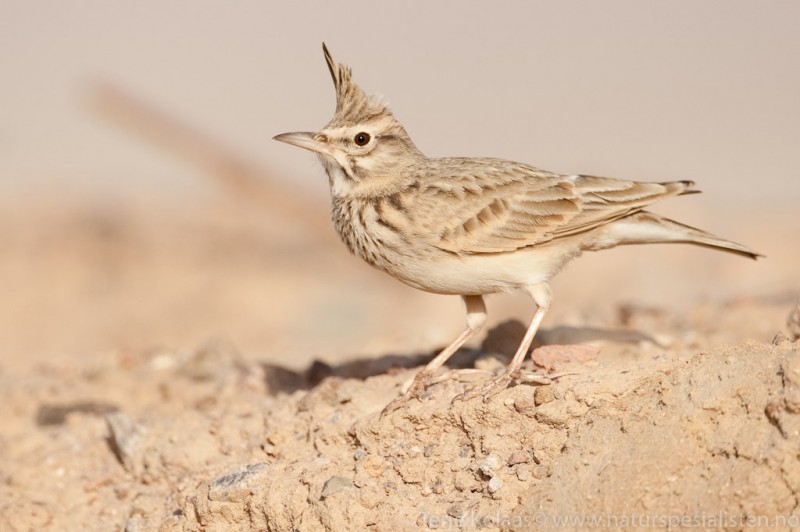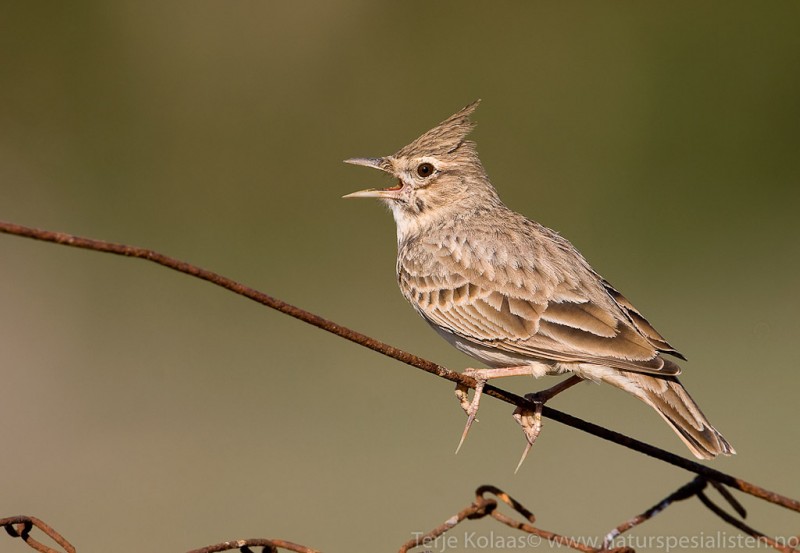Short-toed Treecreeper (Certhia brachydactyla)
Crested Lark (Galerida cristata)
Very similar to Treecreeper C. familiaris, and id by sound generally easier than by appearance in areas where both species occur. Primaries with small, almost pure white tips restricted to outer web. Hind-claw shorter than hind-toe. Wing-bar usually with even "steps", but often difficult to determine. Underparts less white and more brownish than in continental C. familiaris (which again is browner than the pure white northern subspecies). Bill longer and with a stronger curved tip.
Sound:Contact call very similar to C. familiaris. A thin "sreee" often repeated in an even rhythm, perhaps with slighly shorter pauses. Flight call a short and sharp "wit" used freely when moving about. Song diagnostic, and introductory notes often used singly when interacting. Full song starts with one or two staccato introductory notes, the first higher pitched than the second, followed by a rapid, ascending crescendo ending in a drawn-out, less pure "sree". The tone is loud and much more penetrating and clear than C. familiaris. Timbre recalls wet rubber-boots on vinyl flooring. Note that "mixed singers" of C. familiaris are not uncommon in areas where both species of treecreepers occur.
Song:
Distribution:
Xeno-canto: map
Ecology:Birdlife ecology
Links:
Observation.org Latest observations
Image search Flickr NB! May give other species
CCCC-photo:Agustín Povedano, Licence,Link.
Gives a bulkier impression than Skylark, with longer bill, heavier head and body, and broader tail. In flight broad wings and short tail prominent. Lacks white edges on wings. Orange buff underwings. Crest on rear crown spiky and uneven. Outer tail feathers rufous, not white. Occasional song-flight. Slower wing-beats than skylark. Very similar to Thekla Lark, and identification can be very difficult in areas where both species occur. The much used streaked-breast character is not always relevant because of regional variations. Then habitat, behaviour and voice becomes important to identification, and a combination of structural and plumage character should be used. Bill appears curved (because of straight lower mandible), crest spikier than Thekla, belly deeper, back less heavily streaked , tail coverts less rusty-brown, upper breast usually with less defined streaking. Eye-stripe buffish, rather than white behind eye. Less prone to perch on top of scrubs or bushes than Thekla, and prefers lower altitude .
Sound:Song: a mix of long whistling, fluting sounds, trills and mimicry. Full song quite similar to Thekla Lark. Rudiments of song are often heard and includes more melancholic whistling than Thekla. Contact call/alarm-call: May be the best characteristic to separate it from Thekla Lark where both species occur. Crested Lark call with 2-4 syllables, of which one is extended and fairly flat. The phrase has a less "bouncing" feel to it than Thekla Lark, lacking the accented rapid rise and fall in pitch of the extended note of Thekla Lark.
Song:
Distribution:
Wikipedia: map (se also Xeno-canto below)
Ecology:Birdlife ecology
Links:
Observation.org Latest observations
Image search Flickr NB! May give other species
CC
 English
English Albanian
Albanian
 Armenian
Armenian
 Bulgarian
Bulgarian
 Catalan
Catalan
 Croatian
Croatian
 Czech
Czech
 Danish
Danish
 Dutch
Dutch
 Finnish
Finnish
 French
French
 Georgian
Georgian
 German
German
 Greek
Greek
 Hungarian
Hungarian
 Italian
Italian
 Latvian
Latvian
 Lithuanian
Lithuanian
 Macedonian
Macedonian
 Norwegian
Norwegian
 Polish
Polish
 Portuguese
Portuguese
 Romanian
Romanian
 Russian
Russian
 Sami : Lule sami
Sami : Lule sami
 Sami : North sami
Sami : North sami
 Sami : South sami
Sami : South sami
 Scientific names
Scientific names
 Serbian
Serbian
 Spanish
Spanish
 Swedish
Swedish
 Ukrainian
Ukrainian


